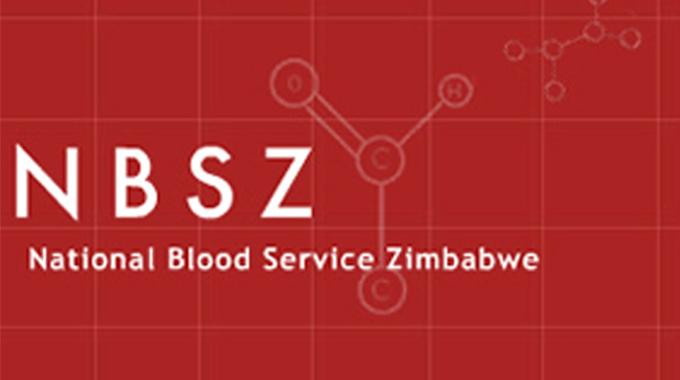News / National
Blood shortage crisis pushes Zimbabweans into debt
26 Jul 2025 at 14:14hrs |
0 Views

Zimbabwe's promise of free blood transfusions in public hospitals is being severely undermined by a deepening national shortage, forcing desperate patients to turn to private medical facilities where they are charged over US$250 per pint of blood.
The situation has laid bare the disconnect between government policy and the harsh realities on the ground, leaving many citizens burdened by debt as they seek life-saving care.
In 2018, the government declared blood transfusions would be free in public health institutions, a move hailed at the time as a major step toward equitable healthcare. Yet, due to persistent funding constraints, logistical challenges, and seasonal declines in voluntary blood donations, the public healthcare system is struggling to maintain adequate supplies.
As a result, patients facing medical emergencies such as postpartum hemorrhage, trauma injuries, and surgical complications are increasingly being referred to private clinics where transfusions come at a steep cost-often beyond the reach of ordinary Zimbabweans.
"This has become a life-or-death issue," said a Harare-based medical officer. "Many patients simply cannot afford these private charges and are being forced to sell property or borrow from microfinance lenders just to stay alive."
The human toll is significant. Stories have emerged of families going into crippling debt or pawning household goods to pay for transfusions. In the absence of timely and affordable access to blood, some patients die from treatable conditions.
Health experts warn that the crisis disproportionately affects vulnerable groups, including women in childbirth. Postpartum hemorrhage remains one of the leading causes of maternal deaths in Zimbabwe, and the unavailability of blood only compounds the risk.
The National Blood Service Zimbabwe (NBSZ), the non-profit organisation mandated with collecting and distributing blood, is struggling to meet demand. Although it runs mobile outreach programmes and school-based donation drives, structural limitations-including few donation centres and transportation issues-continue to hamper efforts.
"The current system depends heavily on high school students, but during school holidays or exam periods, donations drop drastically," said a senior official at NBSZ. "We need more consistent community-based participation."
While the government still subsidizes blood in public hospitals, experts argue the benefit is effectively cancelled out by chronic supply gaps. When public institutions run dry, patients have little choice but to buy blood from private providers-if they can afford it.
"This turns a public health promise into a luxury for the privileged," said a healthcare advocate. "For many, the inability to pay is a death sentence."
As the crisis deepens, calls are growing for a comprehensive review of Zimbabwe's blood services system, including increased government funding, improved donor recruitment strategies, and investment in storage and distribution infrastructure.
Without swift action, health professionals warn that the gap between policy and reality will continue to grow-with devastating consequences for the country's most vulnerable.
The situation has laid bare the disconnect between government policy and the harsh realities on the ground, leaving many citizens burdened by debt as they seek life-saving care.
In 2018, the government declared blood transfusions would be free in public health institutions, a move hailed at the time as a major step toward equitable healthcare. Yet, due to persistent funding constraints, logistical challenges, and seasonal declines in voluntary blood donations, the public healthcare system is struggling to maintain adequate supplies.
As a result, patients facing medical emergencies such as postpartum hemorrhage, trauma injuries, and surgical complications are increasingly being referred to private clinics where transfusions come at a steep cost-often beyond the reach of ordinary Zimbabweans.
"This has become a life-or-death issue," said a Harare-based medical officer. "Many patients simply cannot afford these private charges and are being forced to sell property or borrow from microfinance lenders just to stay alive."
The human toll is significant. Stories have emerged of families going into crippling debt or pawning household goods to pay for transfusions. In the absence of timely and affordable access to blood, some patients die from treatable conditions.
The National Blood Service Zimbabwe (NBSZ), the non-profit organisation mandated with collecting and distributing blood, is struggling to meet demand. Although it runs mobile outreach programmes and school-based donation drives, structural limitations-including few donation centres and transportation issues-continue to hamper efforts.
"The current system depends heavily on high school students, but during school holidays or exam periods, donations drop drastically," said a senior official at NBSZ. "We need more consistent community-based participation."
While the government still subsidizes blood in public hospitals, experts argue the benefit is effectively cancelled out by chronic supply gaps. When public institutions run dry, patients have little choice but to buy blood from private providers-if they can afford it.
"This turns a public health promise into a luxury for the privileged," said a healthcare advocate. "For many, the inability to pay is a death sentence."
As the crisis deepens, calls are growing for a comprehensive review of Zimbabwe's blood services system, including increased government funding, improved donor recruitment strategies, and investment in storage and distribution infrastructure.
Without swift action, health professionals warn that the gap between policy and reality will continue to grow-with devastating consequences for the country's most vulnerable.
Source - Al Jazeera
Join the discussion
Loading comments…






















